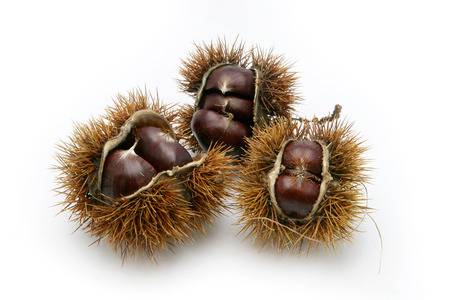
Brief introduction on chestnut
The chestnut fruit has a pointed end with a small tuft at its tip (called “flame” in Italian, and at the other end, a hilum – a pale brown attachment scar. In many varieties, the fruit is flattened on one or two sides. It has two skins. The first one is a hard, shiny, brown outer hull or husk. Underneath is another, thinner skin, called the pellicle. People in eastern Asia such as China, Japan, and South Korea are fond of chestnut roasted or stir-fried with sugar. According to statics, China contributes a proportion of more than 50% to international chestnut yield
How to open chestnut spur manually
After harvested, the chestnut with the spur out layer will go through the next procedure—foot stamping with worker wearing the stern rubber shoes, in this step the chestnut kernel and spur can be separated. During stamping, be careful to stamp on chestnut with appropriate force in case of kernel damage. As we can tell, the manual stamping method is not applicable to commercial chestnut processing.
Full automatic chestnut shelling machine
The latest automatic chest nut spur shelling machine invented and developed by Shuliy machinery can processing chestnut much more efficient when combined with other products like, sieving machine, peeling machine, and dehydrating machine. The chest nut sheller characterized by its high working efficiency, low damage rate, and neat shelling effect is widely used in chestnut processing line across the world.

